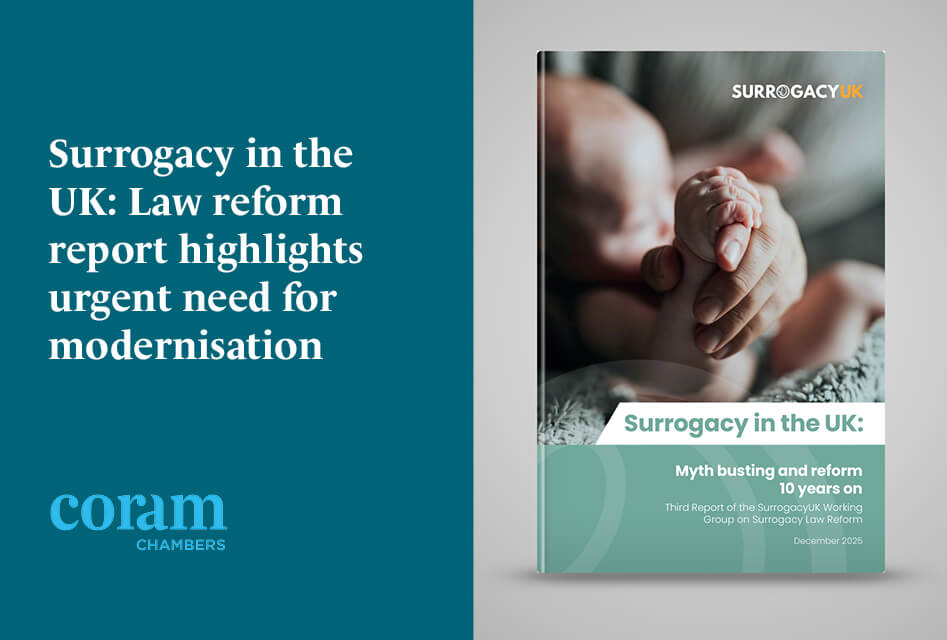
In a judgment handed down on 13th June 2025, His Honour Judge Farquhar addressed the serious repercussions of non-compliance with financial remedy orders, particularly regarding the non-implementation of Pension Sharing Orders and the application of the Thwaite jurisdiction.
The case of AP v TP (Pension Enforcement) [2025] EWFC 190 (B) illustrates the potential significant implications for litigants who fail to adhere to court orders, sending a stark warning to those who delay or refuse to fulfil their obligations.
Sophie Kay, barrister with Coram Chambers and instructed by Stowe Family Law LLP, represented the Applicant Husband and successfully obtained an order for a Pension Share Order (PSO) to be set aside. The Respondent Wife’s lack of engagement led to this critical court intervention. She did not participate in the enforcement proceedings and also obstructed the sale of the former family home.
The Husband, now aged 70, has faced emotional and financial uncertainty for the past two years following a consent order being agreed. He has sought to retire but has been unable to access his pension until the PSO is implemented. In short, the Wife failed to sign the necessary implementation paperwork from the pension provider. This resulted in the court exercising its discretionary powers pursuant to the Thwaite jurisdiction to set aside the previously agreed Pension Sharing Order (PSO). This decision is highly unusual.
The court recognised that it would be inequitable not to set aside the PSO, and allow the Wife’s non-compliance and engagement to continue. This triggered the unusual ruling, which would see her pension share set aside if she did not complete the required forms within 28 days.
Moreover, the case illuminated how to navigate the difficult process of serving a non-engaging party. It revealed innovative methods employed by the Husband including leveraging instructing a Private Investigator and obtaining a disclosure order from the Department for Work and Pensions (DWP) to ensure the Wife was adequately notified of the proceedings. The judgment highlights the extent to which courts are willing to go to enforce compliance when parties refuse to cooperate.
The ruling also highlights to non-engaging parties the risk of significant costs orders being made due to litigation misconduct in financial remedy proceedings. The court made substantial costs orders against the Wife (two of which had not been complied with) and a further costs order totalling £20,000. This emphasis on costs reflects the court’s disapproval of the Wife’s behaviour, acting in defiance of the court.
This judgment serves as a crucial warning to non-engaging litigants of the wide-ranging powers of enforcement in financial remedy proceedings, highlighting the importance of compliance in facilitating fair outcomes for all parties involved. Failure to engage with the court process can not only jeopardise one’s financial interests but can also lead to significant repercussions. As this case illustrates, ignoring financial remedy obligations may end in losses that could have been mitigated through active cooperation in the legal process.
The case is available for you to view and download below.


